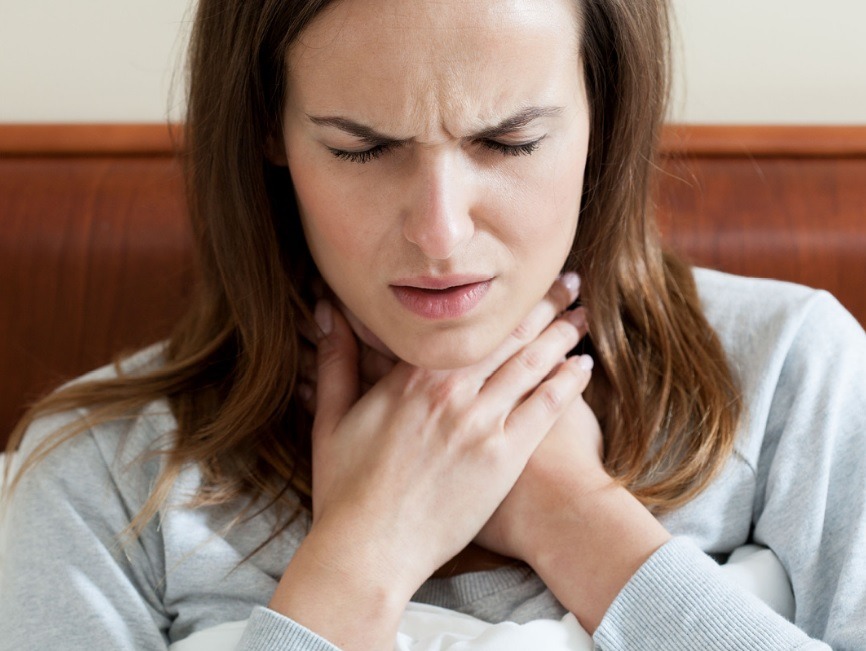Dry Mouth
What does it mean when I have a dry mouth?

Saliva is important as it moistens and cleanses the mouth, helps us digest food and it contains antimicrobial properties that prevents infections in the mouth.
It is important to have adequate saliva in the mouth as it keeps everything in the mouth moist and comfortable. It helps us digest food, chew and swallow. It can also fight against bacteria and prevent bad breath.
Saliva naturally helps remineralise the tooth’s enamel, fighting against tooth decay and if you’re wearing a denture teeth it can help secure it in place and provide some protection to your underlying gums and tissue to prevent it from causing irritation.
Dry Mouth or Xerostomia is usually a symptom of an underlying issue such as:
-
Side effects of certain medications – Medications can cause or exacerbate symptoms of dry mouth, and more commonly but not exclusively the elderly population are at risk. Medications that may affect saliva flow are antihypertensives, antidepressants, pain relief medications, diuretics and antihistamines. Drugs such as methamphetamine, heroin, cocaine, ecstasy and marijuana can also cause dry mouth.
-
Related to medical conditions – certain medical conditions can contribute to dry mouth, HIV/AIDS, Alzheimer’s, cystic fibrosis, stroke, cerebral palsy, Parkinson’s disease, lupus, Sjogren’s Syndrome etc. Cancer treatment such as chemotherapy or radiotherapy can cause a reduction in saliva flow and production.
-
Nerve damage as result of injury – the glands that produce saliva are stimulated by nerves, however if the nerve is damaged due to trauma or there is damage to these nerves it may lead to a reduction in saliva flow
-
Dehydration – not having enough fluid intake can lead to thick and stringy saliva to occur in the mouth, as well as a decrease in saliva production. Dehydration may be due to excessive, extreme heat or medical conditions.
-
Mouth Breathing – mouth breathing due to habit or due to nasal congestion, blocked sinus can cause dry mouth. Issues of mouth breathing may be best investigated by your GP.
Untreated dry mouth can raise your risk of dental decay which may lead to tooth loss, gum disease, oral infections as well as make denture wear very uncomfortable.
Tooth Related Problems
- Dental decay may lead to pain
- Tooth loss
- Gum disease
Eating Problems
- Difficulty chewing and swallowing food
- Reduced or altered taste
- Reduced appetite may lead to poor nutrition (malnutrition), hence impacting quality of life and may impact your general health
Throat Problems
- Difficulty with speech
- Sore throat and hoarse voice
Mouth Related Problems
- Mouth may be susceptible to oral candidiasis (oral thrush) due to the lack of saliva causing a imbalance in the mouths environment
- Bad breath (halitosis)
- Denture wear may be uncomfortable
- Dry and cracked lips
- Burning sensation on the tongue and mouth
What are the signs you have dry mouth?
- Stringy, thick, foam like saliva
- Dry and/or cracked lips
- Tongue feels like it sticks to the surface of your teeth, gums and mucosa
- Difficulty chewing or swallowing
- Bad breath
- Ulcers
- Oral candidiasis (oral thrush)
- Burning or tingling mouth sensation
- OR you might have a dry mouth and not be even aware of it
I have dry mouth, what can I do to help manage it?
See your Canberra Dentist
-
Regular dental visits every 6 months are important to help maintain your oral health. When you have low saliva quantity, you’re at an increased risk of developing tooth decay, gum disease and other dental related issues.
-
Your Dentist Canberra will be able to give you the best advice on how to manage your individual condition and oral health as everyone is different
See your General Practitioner (GP)
-
If you’re on a medication and are feeling dry mouth, have a talk with you GP to discuss your medications and lifestyle that may be contributing to dry mouth
Tips to manage Dry Mouth
Oral Hygiene
- Brushing twice a day, morning and night with a fluoride toothpaste
- Using a NON SLS toothpaste, as SLS products can cause further irritation
- Using alcohol free mouth rinse
- Flossing between your teeth at night daily
Diet
- Reducing sugars and acidic foods as this can contribute towards dental decay
- Increasing water intake, everyone’s water intake may be different so talk to your GP
- Sipping on water throughout the day, to make sure it stays moist
- Chewing on chewing gum that stimulates saliva flow
Dry Mouth Products
- Gels and mouth rinses that stimulate saliva production
- Keeping your lips protected with lip balm/moisturiser
Medications
- If you’re using an inhaler, make sure to drink / sip water after using
Smoking
- Smoking can contribute to dry mouth and can affect the health of your mouth
- If you’re interested in quitting talk to your GP or Pharmacist


